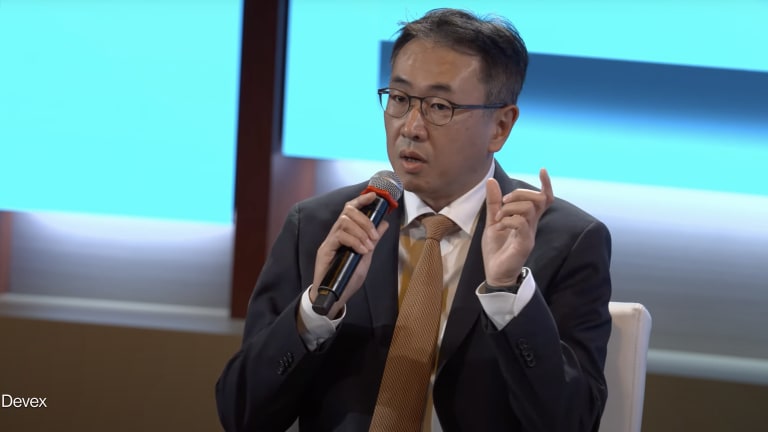
World Bank President Jim Kim’s op-ed about the negative effects of discrimination around the world published last week was seen as a powerful rebuke to governments in Uganda and elsewhere that have recently passed anti-gay laws.
But perhaps even more upsetting to the government of Uganda was the announcement that followed: the Washington, D.C.-based institution delayed the approval of the a $90 million loan to support the country’s health system.
Ugandan officials called the postponement of the loan “blackmail,” but many in the development community praised the move as a bold — albeit unusual — one for an organization that usually tries to avoid getting involved in national politics.
In a press briefing this week, Kim explained his rationale for delaying the loan, arguing that he acted in response to specific concerns about the projects the loan would be used for — rather than a new policy the bank was creating toward discriminatory laws and the governments that enact them.
“We're not a political organization, we're not a human rights organization, we're an organization focused on economic development, but we have values, and one of the values is that we are against discrimination, certainly in terms of the projects that we work on,” he said. “So in this particular case, I just was not sure that a recent change in the law would or would not lead to discrimination in the projects that we're supporting.”
The World Bank, he added, is still examining whether the money would go to projects that might discriminate homosexuals — a process approved by the executive board — in maternal health and family planning.
Kim said that the bank was not backing off on its relationship with Uganda, and World Bank financial assistance to help the country fight poverty will continue.
“This is a very specific case — a change in the law that very may well impact our ability to support a project that could potentially discriminate, so we need to find the answer to that question before we move forward,” he explained.
Jim Kim’s article in The Washington Post, in which he said expressed his own personal views rather that bank policy, addressed different forms of discrimination. He wrote that the institution was determined to address discrimination more broadly, and how laws like the one in Uganda can affect current and future staff.
While it seems unlikely that Uganda will set a precedent for suspending assistance for discriminatory governments, the use of World Bank funding to send a message about human rights concerns is not unprecedented. Most notably, lending to China was frozen after the 1989 Tiananmen Square massacre.
The message will continue loud and clear even if the $90 million loan to the African country is eventually released, stressed Kim.
“We have to keep beating that drum,” he said. “Anti-discrimination and equality might be part of our moral values as individuals, but for us the even more important thing is that now we've got a lot of good data that suggests it's bad for economic growth as well.”
Read more development aid news online, and subscribe to The Development Newswire to receive top international development headlines from the world’s leading donors, news sources and opinion leaders — emailed to you FREE every business day.
Read more:
Aid freeze deepens after Uganda's anti-gay bill
How Uganda's anti-gay law can undermine HIV and AIDS response
Uganda's anti-gay law: A silver lining for LGBTI aid?
Netherlands to review support for CSOs backing Ugandan anti-gay bill








